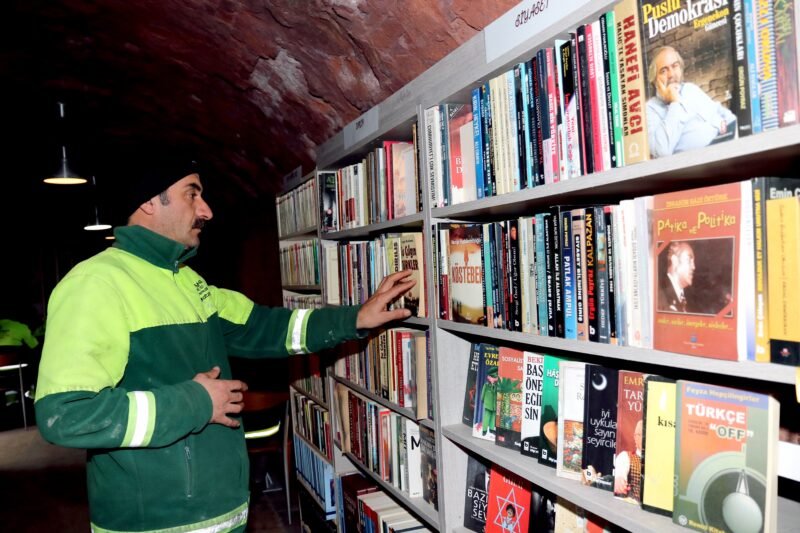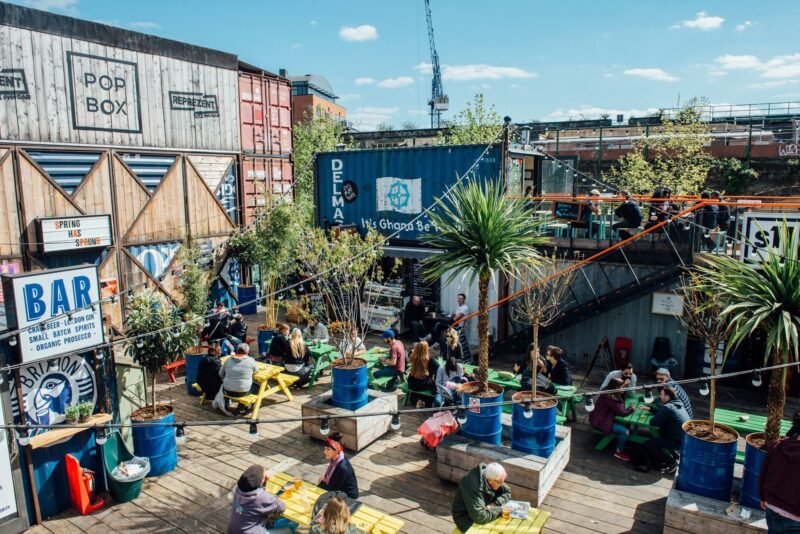Torre David: Informal Vertical Communities
 Torre David is an unfinished skyscraper in the heart of Caracas’ former central business district. 45 floors high it’s the third tallest building in Venezuela. For some reasons the tower has been under construction for over 21 years, and it is unlikely that the building will ever be finished.
Torre David is an unfinished skyscraper in the heart of Caracas’ former central business district. 45 floors high it’s the third tallest building in Venezuela. For some reasons the tower has been under construction for over 21 years, and it is unlikely that the building will ever be finished.
Torre David accommodates over 750 families that squatted the building in 2007 and turned it into a huge informal vertical community. The self-organized ‘vertical slum’ is a one-of-a kind urban phenomenon that shines a very interesting light on urban development and its social aspects. Urban Think Tank devoted the great book Torre David: Informal Vertical Communities to the tower, which is one of the world’s largest informal communities.
Urban Think Tank spent a year studying the physical and social organization of this ruin-become home. Illustrated with photos by Iwan Baan, the book documents the residents’ occupation of the tower and how, in the absence of formal infrastructure, they organize themselves. The building lacks elevators, electricity infrastructure, running water, balcony railing, windows, and even walls in many places, but works as a micro-community complete with shops and services inside the building, all set up and built by inhabitants. The building hosts a hair dresser, an uncertified dentist, a gym, grocery shops, tailors and communal spaces like an in-house church. Lots of inhabitants have a car that they park in the parking garage of the tower.

Torre David is a great example of improvised urbanism. Economic and political circumstances lead to a shift in approach. After property developer David Brillembourg passed away in 1993 and the financial group responsible for the construction collapsed as a result of the 1994 Venezuelan bank crisis, lots of private initiatives transformed an unfinished concrete skeleton into a vibrant housing accommodation for the poorest.

In many Western European cities, planners talk about ways to build large-scale housing on a collective basis. But here it just happened in a spontaneous way and without any set of predefined rules or principles. For that reason the book is a thought-provoking contribution to the debate about informality and spontaneity in urbanism. Torre David also answers the question whether or not this example could work in other places and in comparable situations around the globe.

The inhabitants of Torre David transformed the ruins of a postmodern skyscraper conceived and launched in the corporate optimism of the late 1980’s into a working community with over 3000 inhabitants. In that sense the inhabitants can be considered part of architectural process.

Many families have built walls made of bricks to make their house a save place and to separate their space from the other families private domains. But also services like electricity and water are organized collectively by the inhabitants themselves, which points to a developed decision-making structure. Organization and decision making processes are also described by Urban Think Tank:
“As every micro community also Torre David has an own decision making structure. As described in the book , it would be a mistake to understand Torre David as a pure representative democracy or as entirely consensus driven. “Its leadership structure is a sequence of concentric circles of influence and authority. the innermost circle, known as ‘La Diretiva’ revolves around the president of the community Alexander ‘el niño’ Daza, the pastor of the local church.”

The way Torre David is organized and converted makes the community more than a ‘vertical slum’. The level of organization is relatively high which has been the only way to make the living circumstances good enough to life in an unfinished skyscraper with 3000 people. The book Torre David gives a good example of bottom-up approaches in urbanism. Everything that makes the tower-community to what t is right now, is composed intelligently and described and mapped in a very interesting and inspiring way. This makes Torre David: Informal Vertical Communities a great book.
Torre David: Informal Vertical Communities
Urban Think Tank
Edited by Alfredo Brillembourg and Hubert Klumpner
Published by Lars Müller Publishers
16.5 x 24 cm, hardcover
416 pages, 406 illustrations
ISBN 978-3-03778-298-9, English
EUR 45.00 / USD 60.00 / GBP 38.00
We’re giving away two copies of Torre David to our readers! Click here for more information.



